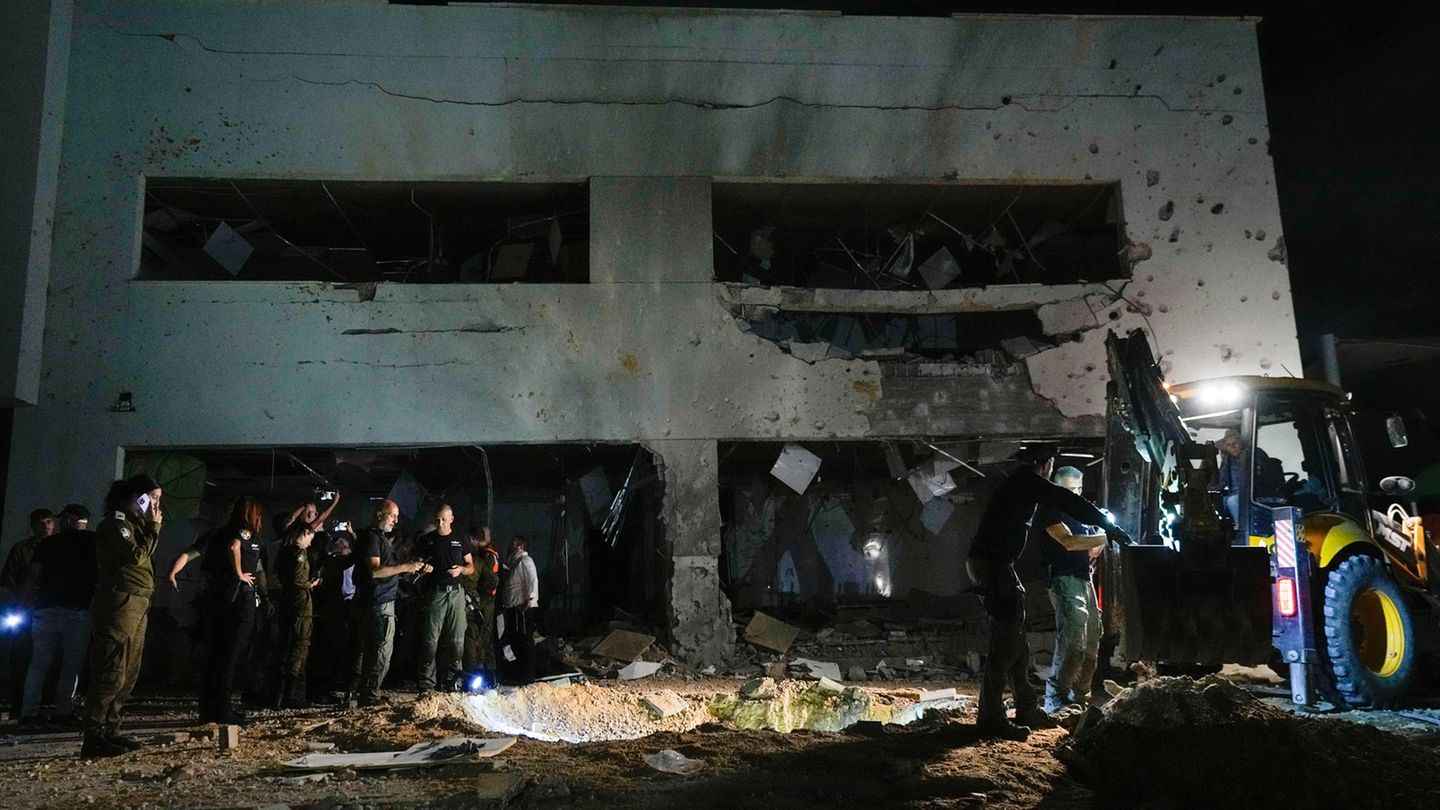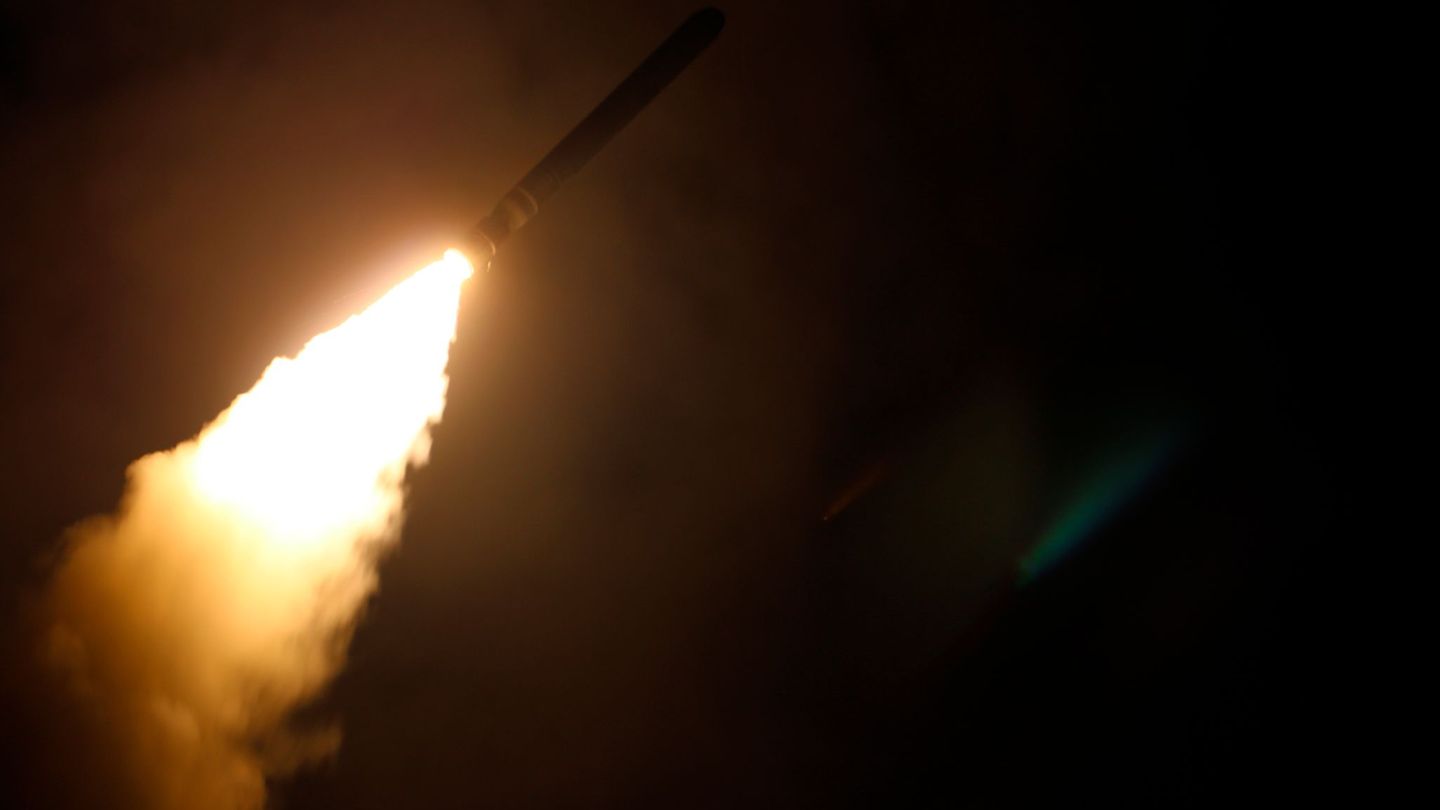Sirens are wailing across the country in Israel and millions are seeking refuge in shelters. The feared attack by Iran has become reality. Is the counterattack now coming?
Iran has attacked Israel with numerous missiles. According to initial estimates by the Israeli army, around 180 projectiles were fired on Tuesday evening. Most were intercepted by Israel and a US-led defense coalition, the Israeli military said. According to the current record, there was one fatality in the West Bank and two injured in Tel Aviv. Jordan also reported two people slightly injured by falling debris from rockets.
According to army spokesman Daniel Hagari, there were a small number of impacts in central and southern Israel. No major damage was reported in the cities or by the military until late in the evening. Nevertheless, Israel announced a counterattack. “This attack will have consequences,” warned Hagari. There are already plans for that.
The US government also rated the rocket attack on Israel as “thwarted and ineffective.” Nevertheless, it is a “significant escalation,” said US National Security Advisor Jake Sullivan in Washington.
US supports Israel’s missile defense
According to its own statements, the USA uses warships to defend itself against missiles. US President Joe Biden had ordered the US military to support Israel and shoot down Iranian missiles. The fatality in the rocket attack was a man in the West Bank: The 38-year-old Palestinian was killed by rocket fragments in Jericho, the Palestinian Civil Defense and local media said. The person killed originally came from the Gaza Strip.
How can Israel intercept hundreds of missiles from Iran?
01:37 min
The Iranian Revolutionary Guards said on state television that the attack was in retaliation for the killing of Hamas foreign chief Ismail Haniya, Hezbollah Secretary General Hassan Nasrallah and an Iranian general. Ninety percent of the rockets hit the target, the Revolutionary Guards said. Given the limited damage, an idiosyncratic statement.
Millions of people in Israel sought refuge in shelters during the attack. Dozens of people gathered in a bunker beneath a shopping center in central Tel Aviv. A woman reacted in panic to the sounds of explosions that could also be heard in the underground rooms. Many people read or listened to the news until the all-clear was given after around an hour and they were allowed to leave the bunker again.
The US security advisor Sullivan also said that the attack would have consequences and that they were now working on this with Israel. Asked whether the Israeli government under Prime Minister Benjamin Netanyahu was dragging the United States into a regional war, a State Department spokesman said: “The United States offers its advice, it offers its support, it offers its deterrence capabilities.” Ultimately, however, both Israel and the USA would have to decide according to their own interests. The US is prepared to use diplomacy and deterrence to prevent a regional war.
In the Israeli coastal metropolis of Tel Aviv, two people were slightly injured by shrapnel in the attack, according to the Magen David Adom rescue service. Several others were treated for minor injuries after a fall or for acute anxiety.
Deadly knife attack in Tel Aviv
Shortly before the rocket attack, several people were killed in a shooting and knife attack in southern Tel Aviv. According to police, at least six people were killed in the attack in Jaffa, a predominantly Arab district. The fatalities are therefore civilians. The attackers are also reportedly dead.
Images from surveillance cameras showed the two attackers getting off a tram and shooting people with automatic weapons. They were then “neutralized” by the police and civilians present using firearms.
Iran’s Revolutionary Guards threaten further attacks if Israel strikes back
According to their own statements, the air force of the Revolutionary Guards fired on important military targets in Israel. At the same time, the Revolutionary Guards threatened further “devastating and destructive attacks” if Israel responded to the Iranian strike.
After the rocket attack, UN Secretary-General António Guterres urged the conflicting parties to exercise restraint: “This has to stop. We absolutely need a ceasefire,” Guterres wrote on Platform X.
Shortly before the attack, the US government warned of an “imminent” missile attack by Iran on Israel. A little later, the Israeli authorities ordered people in the Tel Aviv area to stay near shelters.
In April, Iran’s Revolutionary Guards (IRGC) carried out a direct attack on Israel for the first time in the history of the Islamic Republic. The IRGC air force fired more than 300 drones, missiles and cruise missiles at their arch-enemy. The attack was successfully repelled. Iran was reacting to the killing of high-ranking generals who had previously been killed in a suspected Israeli attack in Syria.
Iran’s rulers vowed revenge
Israel’s military and secret services had recently significantly weakened Iran’s allies in the region. At the end of July, the foreign chief of the Islamist Hamas was killed in Tehran. Iran’s leadership then vowed revenge. Last Friday, Nasrallah, the head of the Lebanese Shiite organization Hezbollah, another key ally of Tehran, was killed. Previously, exploding radio receivers, so-called pagers, injured hundreds of Hezbollah officials and killed several. Since then, it has been unclear whether and how Iran’s military leadership will respond.
Middle East conflict
Fire in the night sky – the images of the attacks on Israel
On Tuesday, the Israeli military took another step: Israeli ground troops entered Lebanon again for the first time in almost two decades. Israel cites the ongoing rocket fire by the Hezbollah militias from southern Lebanon as the reason. Around a year after the start of the Gaza war, the focus of the fighting shifted towards the neighboring country to the north. The army spoke of “limited” attacks near the border on targets of Hezbollah, which is closely allied with Iran.
After the Iranian missile attack, some cheers broke out in the Lebanese capital Beirut. Eyewitnesses reported that shots of joy could be heard from the suburb of Haret Hreik, where Israel killed Hezbollah chief Nasrallah. Clapping and cheering could also be heard in central Beirut, where many families displaced by Israel’s attacks in the country are currently holding out on the streets and public squares.
Source: Stern
I have been working in the news industry for over 6 years, first as a reporter and now as an editor. I have covered politics extensively, and my work has appeared in major newspapers and online news outlets around the world. In addition to my writing, I also contribute regularly to 24 Hours World.




